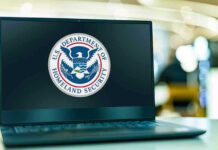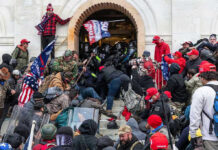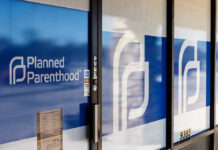
A new wave of federal intervention in Chicago raises concerns about civil liberties and the future of urban security.
Story Highlights
- DHS deploys Special Ops to Chicago following domestic terrorism threat.
- Federal and local agencies collaborate to prevent potential attacks.
- Public debate on militarization of law enforcement intensifies.
- Concerns grow about civil liberties and federal overreach.
Federal Response to Terror Threat in Chicago
The Department of Homeland Security (DHS) has deployed Special Operations forces to Chicago after receiving intelligence about a credible domestic terrorism threat. This move marks an unprecedented collaboration between federal and local agencies in one of America’s largest cities. The deployment aims to bolster security and prevent any potential attacks, ensuring the safety of Chicago’s residents and critical infrastructure.
Special Ops units, including elite tactical teams, have commenced joint operations with local law enforcement. The integration of federal resources highlights the serious nature of the threat and the determination of authorities to act swiftly. However, the presence of federal forces has sparked debate about the militarization of law enforcement and the potential erosion of civil liberties.
Chicago’s Security Challenges
As the third-largest city in the United States, Chicago faces numerous security challenges, including gang violence and threats from extremist groups. The rise in domestic terrorism incidents has necessitated a robust response, but it also raises questions about the balance between security and civil rights. The city’s history of civil unrest and coordinated law enforcement responses adds another layer of complexity to the current situation.
While Special Ops deployment is rare except in severe threat scenarios, the decision to involve federal forces in Chicago underscores the gravity of the intelligence received. This move also sets a precedent for federal intervention in urban security, which could have lasting implications for cities across the nation.
Implications for Civil Liberties
The deployment of Special Ops units in Chicago has drawn criticism from civil liberties groups, who warn of potential overreach and the risk of normalizing militarized policing. The increased security presence is meant to reassure the public, but it also raises concerns about privacy and civil rights. The ongoing operations include joint patrols, intelligence sharing, and rapid response drills, aimed at deterring attacks and maintaining public safety.
Public officials, including the Chicago Mayor’s Office, have expressed the importance of respecting civil rights while ensuring security. The debate over federal versus local control, the scope of DHS authority, and the protection of constitutional rights continues to be a central concern for both Chicago residents and national observers.
As the situation develops, the effectiveness and transparency of these measures will be closely scrutinized by civil rights advocates, government officials, and the general public. The balance between ensuring safety and protecting freedoms remains a delicate issue that will shape the discourse on domestic security and urban governance in the coming years.
Sources:
U.S. Department of Homeland Security. (2024-2025). Official statements and press releases.
Chicago Tribune. (2024-2025). Reporting on law enforcement and public safety.
Center for Strategic and International Studies (CSIS). (2024). “Trends in Domestic Terrorism.”
RAND Corporation. (2024). “Federal-Local Coordination in Counterterrorism.”















